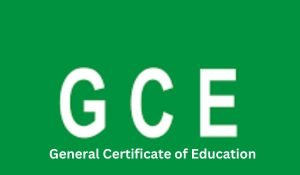Can I Study in Canada with GCE?
Can I study in Canada with GCE? Yes, you can study in Canada with GCE.
For some time now, people have been asking me whether it’s possible to study in Canada with GCE and the answer is a big YES!
In fact, a lot of universities and colleges in Canada accept GCE for admission.
GCE, which stands for General Certificate of Education is accepted in several countries including Canada.
In this comprehensive guide, I will walk you through the steps to study in Canada with GCE and also show you some top Canadian universities that accept GCE for admission.
Ready? Let’s go!
Also Read: Is GCE Harder Than WAEC? (Answer Revealed)
What Is GCE?

GCE, which stands for General Certificate of Education, is a qualification that students in countries like the UK and former British colonies can obtain.
It’s like a badge of achievement after completing secondary education, usually around 16 to 19 years old.
So, GCE has two main levels: the Ordinary Level (O-Level) and the Advanced Level (A-Level).
The O-Level is taken at the end of secondary school and covers various subjects like Math, English, Sciences, and more.
It’s like a broad overview of different subjects.
Now, if students want to dive deeper into specific subjects and pursue university admission, they can move on to the A-Level.
This level allows them to specialize in three or four subjects they’re most interested in.
What makes GCE qualifications great is their reputation and recognition worldwide.
Universities often value these qualifications because they signify academic rigor and excellence.
The grades students achieve in their GCE exams and coursework can have a big impact on their university admissions and future career prospects.
And just to clarify, GCE qualifications are different from the International General Certificate of Secondary Education (IGCSE), which is another popular qualification used in British curriculum schools globally.
Ultimately, GCE is an important educational pathway that opens doors to further education and employment opportunities for students in countries following the British educational system.
Recommended: 10 Tips to Pass GCE Examination
Can I Study in Canada with GCE?

Yes, you can study in Canada with GCE, but there are a few things to keep in mind.
First, take some time to research Canadian universities and find out which ones you’re interested in.
Check their websites for information on admissions requirements and whether they accept GCE qualifications.
Each institution might have its own policies in this regard.
Once you’ve found a university you’re interested in, check their specific admission requirements for international students.
They may list the minimum GCE subject requirements, grades, and any additional criteria you need to meet.
Some universities might require you to convert your GCE grades to the Canadian grading scale, so be prepared for that.
It’s important to note that you may also need to demonstrate proficiency in English or French, depending on the language of instruction at the university.
Language tests like IELTS or TOEFL are commonly required.
If you have any questions or concerns about your GCE qualifications, don’t hesitate to reach out to the admissions office of the university you’re interested in.
They’ll be able to provide you with accurate information and guide you through the process.
Remember, each university has its own requirements, so thorough research and direct communication with the admissions office are key.
Also See: 10 Hardest Subjects to Pass in JAMB and WAEC (Revealed)
Steps to Study in Canada with GCE

When seeking to study in Canada with GCE, there are certain essential steps you must take.
Let’s look at the steps to study in Canada with GCE.
1. Explore Canadian Universities
Start by exploring different universities or colleges in Canada that offer programs aligned with your interests.
Take your time to research their websites, check out the courses they offer, and find information about their recognition of GCE qualifications.
It’s important to choose universities that suit your academic goals and preferences.
2. Review Admission Requirements
Once you’ve identified your preferred universities, dive into their admission requirements.
Look for specific information for international students and check if they accept GCE qualifications.
Pay attention to the minimum subject requirements, grades, and any additional prerequisites they may have.
This will give you a clear understanding of what you need to prepare.
Also Read: Is NECO Harder Than WAEC? (Answer Revealed)
3. Verify GCE Conversion
Some Canadian universities may require you to convert your GCE grades to the Canadian grading system.
Take the time to research the conversion methods used by universities in the province you’re interested in.
This ensures that you accurately convert your grades and provide the necessary information during the application process.
4. Assess Language Proficiency
Check the language proficiency requirements of your chosen universities.
Most Canadian institutions require international students to demonstrate proficiency in English or French.
This is usually done by submitting language test scores like IELTS or TOEFL.
If needed, prepare and take the required language tests, ensuring you meet the minimum score requirements.
Recommended: Is JAMB Harder Than WAEC? (Answer Revealed)
5. Contact the Admissions Office
If you have any questions or uncertainties about GCE recognition or specific requirements, don’t hesitate to reach out to the admissions office of the universities you’re considering.
They are there to help and provide accurate information.
Contacting them will ensure that you have the correct details and guidance throughout the application process.
6. Gather Necessary Documents
Once you have a clear understanding of the requirements, gather all the necessary documents for your application.
This includes your GCE certificates, transcripts, language test scores, and any additional materials specified by the universities.
Keep track of application deadlines and make sure to submit your documents on time.
Also See: Can I Combine WAEC and NECO for Admission?
7. Submit Your Application
Complete your application through the university’s designated application portal.
Double-check that you’ve included all the required documents and paid any application fees as required.
Take your time to review everything to ensure a smooth submission.
8. Await Admission Decision
After submitting your application, be patient and wait for the university’s admission decision.
The processing time varies for each institution, so stay updated with the communication channels provided by the university.
Keep an eye on your email or applicant portal for any updates or requests for additional information.
Also Read: Can I Use WAEC GCE to Study Abroad?
9. Apply for a Study Permit
If you receive an offer of admission, congratulations!
Follow the instructions provided by the university to apply for a study permit.
The study permit is a document issued by the Canadian government that allows you to study in Canada.
Familiarize yourself with the requirements and application process for the study permit, and be sure to submit your application within the given timeframe.
Top Canadian Universities That Accept GCE
If you are hoping to study in Canada with GCE, it will amaze you to know that many top Canadian universities accept it.
So here are some top Canadian universities that accept GCE:
1. University of Toronto
The University of Toronto, known as U of T, is renowned both in Canada and globally.
It’s recognized for its academic excellence and offers a wide range of programs.
U of T considers GCE A-Level qualifications for undergraduate admissions.
However, it’s important to note that specific subject prerequisites and grade requirements may vary across programs.
Checking the U of T website will provide detailed information regarding your desired program.
2. McGill University
McGill University, located in Montreal, is another prestigious Canadian institution.
McGill accepts GCE qualifications and considers GCE A-Levels for admission purposes.
They have subject-specific requirements for various programs, so it’s crucial to review their website to ensure you meet the prerequisites.
Also Read: 15 Foreign Universities That Accept WAEC Certificate
3. University of British Columbia (UBC)
The University of British Columbia, situated in Vancouver, offers a vibrant academic environment.
UBC accepts GCE A-Level qualifications and evaluates them for undergraduate admissions.
Program-specific subject requirements and grade expectations may vary, so visiting their website will provide the necessary details.
4. McMaster University
McMaster University, located in Ontario, is known for its research-driven programs and innovative teaching methods.
They consider GCE A-Levels as part of their admission evaluation.
It’s advisable to review the subject requirements and grade expectations for your desired program to ensure eligibility.
5. University of Waterloo
The University of Waterloo, also in Ontario, is renowned for its programs in engineering, computer science, and mathematics.
They accept GCE A-Levels for undergraduate admissions and assess them during the application process.
It’s important to check the specific program requirements on their website to understand the prerequisites and expectations.
Recommended: Is WAEC Certificate Accepted Internationally?
6. University of Alberta
The University of Alberta, situated in Edmonton, is known for its research-intensive programs and diverse academic offerings.
They accept GCE A-Level qualifications for undergraduate admissions.
Each program may have specific subject requirements, so reviewing their website will provide the necessary information.
These universities are just some of the top Canadian institutions that recognize GCE qualifications.
Remember to research each university and program individually as admission requirements can vary.
Checking the official websites and contacting the admissions offices directly will ensure you have accurate and up-to-date information tailored to your desired program.
Also See: Can I Use WAEC Result to Study in the USA?
Frequently Asked Questions (FAQ)
What Qualifications Are Required to Study in Canada?
To study in Canada, the qualifications required depend on the level of education you’re pursuing.
For undergraduate programs, you generally need a secondary school diploma or an equivalent.
For graduate programs, a bachelor’s degree or its equivalent is typically required.
Additionally, English or French language proficiency tests like IELTS or TOEFL may be necessary for international students.
Remember to check the official websites of the universities you’re interested in for specific requirements.
How to Can I Apply for Canada Student Visa in Nigeria?
Are you wondering how to apply for Canada student visa in Nigeria?
Well, the first step is to secure an acceptance letter from a Canadian institution.
Collect your documents, including a valid passport, financial proof, and academic transcripts.
Create an online account on the Canadian government’s website and complete the application form.
Pay the necessary fees and submit your application.
Then, attend a biometrics appointment and patiently wait for a decision.
Remember to check the official Canadian government website for detailed instructions tailored to applicants from Nigeria.
What Is the Age Limit to Study in Canada?
There is no age limit to study in Canada, which means that people of all ages can pursue education there.
Whether you’re a fresh high school graduate, a working professional seeking to upgrade your skills, or even a mature student looking for new opportunities, Canadian educational institutions are open to accepting students of any age.
However, it’s important to remember that certain programs or universities might have specific age requirements or prerequisites, so it’s best to check with the institution you’re interested in for program-specific details.
Does Canada Give Student Visa Easily?
Getting a Canadian student visa isn’t automatic, but Canada is known for being welcoming to international students.
The process requires meeting certain requirements, such as proving your intention to study, having enough funds, and meeting health and security criteria.
The ease of obtaining a student visa varies depending on individual circumstances and how well you follow the application process.
By providing accurate documentation, demonstrating your commitment, and submitting a complete application, you increase your chances of getting a Canadian student visa.
How Long Does It Take to Get a Student Visa for Canada?
The processing time for a Canadian student visa can vary.
It usually takes a few weeks to a few months, depending on factors like your country of residence, the time of year, and the number of applications.
It’s essential to apply well in advance and stay updated on the current processing times.
Check the official website of the Canadian government or reach out to the visa application center in your country for the most accurate and up-to-date information on how long it may take to get your student visa.
Also Read: What Causes Failure in WAEC in Nigeria? (Top 20 Reasons)
Conclusion
You can study in Canada with GCE.
GCE opens the door to international studies including in countries like Canada.
However, note that GCE is not the only requirement to study in Canada, so ensure to meet up with other requirements.
In this article, I have shown you the steps to study in Canada with GCE.
By following these steps, you can gain admission into any of the top Canadian universities with your GCE and pursue your higher education.
If you have any questions or inquiries, ensure you drop them in the comment section and I will address them as soon as I can.
Good luck!
Related Posts:
- 10 Steps for Writing WAEC Informal Letter
- 28 Tips on How to Score A1 in WAEC as a Nigerian Student
- 12 Tips on How to Prepare for WAEC in One Month as a Nigerian Student
- 20 Tips on How to Pass WAEC in One Sitting as a Nigerian Student
- 15 Tips for Passing WAEC with Flying Colors as a Nigerian Student
- 6 Easiest Subjects to Pass in JAMB and WAEC (Revealed)
- Is NECO Certificate Accepted Internationally?
- 10 Tips to Pass JAMB without Studying Too Hard
- List of Universities That Accept Low JAMB Score
- How to Gain Admission with Low JAMB Score (7 Pro Tips)
- 12 Reasons Why Students Fail JAMB Examination (And the Solutions)
- 10 Tips on How to Score 300 and Above in JAMB
- Nigerian Universities That Gives Admission without JAMB
- Can You Go to School of Nursing without JAMB?






